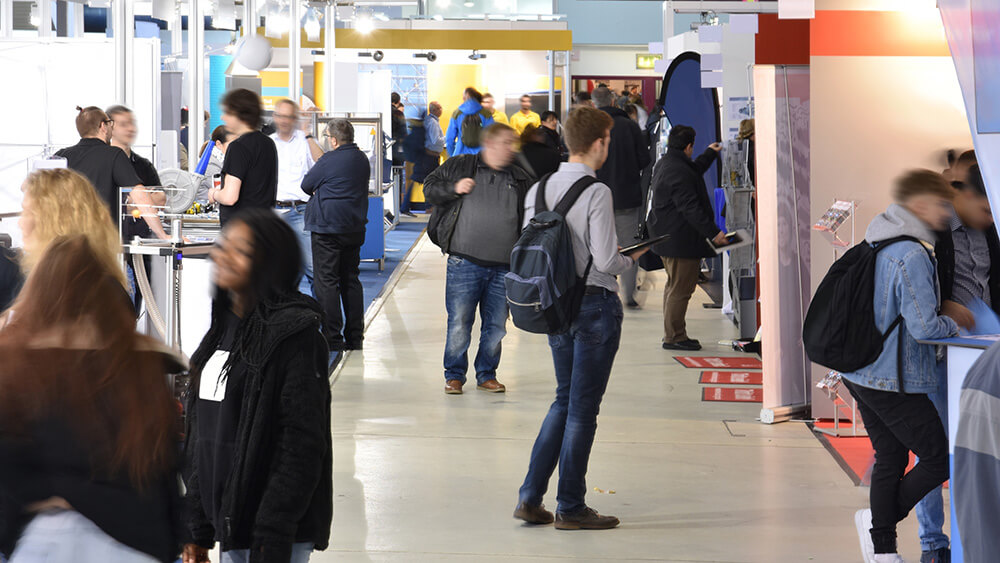
Events play a critical role in many companies’ marketing mix — giving them exposure for their brands, launching new products, and meeting with buyers.
Because of pandemic-era deferments, exhibitors are just now reaching the end of previously invested show funds, and many are taking a fresh look at the ROI traditional events have historically delivered before they recommit. Here’s a look at what is happening and how to respond.
Why is this a turning point for exhibitors?
The pandemic led some exhibitors to conclude that they didn’t need events to advance their objectives. Some found success generating leads and exposure through smaller, proprietary events or online. On the opposite side, others realized the critical role that events play in their marketing mix and just how dependent they are on them to gain widespread exposure for their brands, launch new products, and meet with international buyers — all in a cost-effective way.
During this time, many companies moved the function of “events” from the sales department to the digital department, which rolls up to marketing. Post-pandemic, Freeman research has shown, events have stayed under marketing — and marketing is more influenced by data and facts than the less quantifiable reasoning that was once used to justify a booth (e.g., “What will the industry think if we’re not there?” or “What if our competitors are there talking to our customers?”). This signals more of a turning point for event marketers: It’s time to tell our stories differently to ensure we are making a compelling, data-driven case to exhibit.
Why is now a good time for exhibitors to invest in live events?
There’s a massive shift happening in the workforce as baby boomers retire and millennials, many of whom are now in their 40s, assume more and more management positions. Events provide an unprecedented opportunity for exhibitors to fill their sales pipeline with next-gen customers. What’s more, recent Freeman data shows that 71 percent of the younger generation trust a brand more following their interaction with it at a live event.
What do exhibitors want from events that they currently aren’t getting?
Freeman data shows a widening gap between exhibitors’ expectations and satisfaction levels when it comes to meeting new customers, lead acquisition, and generating more awareness for their brand or product. It’s imperative that event organizers work more closely with customers to facilitate deeper connections and create opportunities that allow them to further their objectives. To do this, we’re going to have to think beyond the traditional model and learn to say “yes” more often than we say, “That’s not how it’s done at a trade show.” We also need to reframe our ROI into ROO (return on objective). The short-term calculation of ROI can’t account for the long-term relationships companies need to nurture as they fight to retain customers and pursue new leads.
Communicate Who’s Coming
We don’t do a good enough job of positioning our attendees as the product we’re selling to our exhibitors. We need to better communicate who is coming in order to help exhibitors plan their presence accordingly.
As an example, one event mdg marketed rotated into Florida for the first time several years ago, but event organizers failed to educate the exhibitors about everything that was being done to attract the Latin American market that we anticipated attending based on geographic proximity. Exhibitors were both thrilled to get exposure with so many prospective Central and South American customers who hadn’t previously attended the event and disappointed that they didn’t have enough Spanish speakers and international sales staff in their booths.
For another event, research revealed a major benefit for event attendees was getting beyond the salespeople in the booths to talk with the engineering staff who could answer tough, highly technical questions. This is the kind of information that exhibitors deserve to know to increase the likelihood of having a successful show.
Kimberly Hardcastle-Geddes is president and chief marketing strategist at mdg, a Freeman Company, a full-service marketing and public relations firm specializing in B2B events.
Ken Holsinger is senior vice president of strategy at Freeman.
On the Web
Download the Freeman Trends Report
